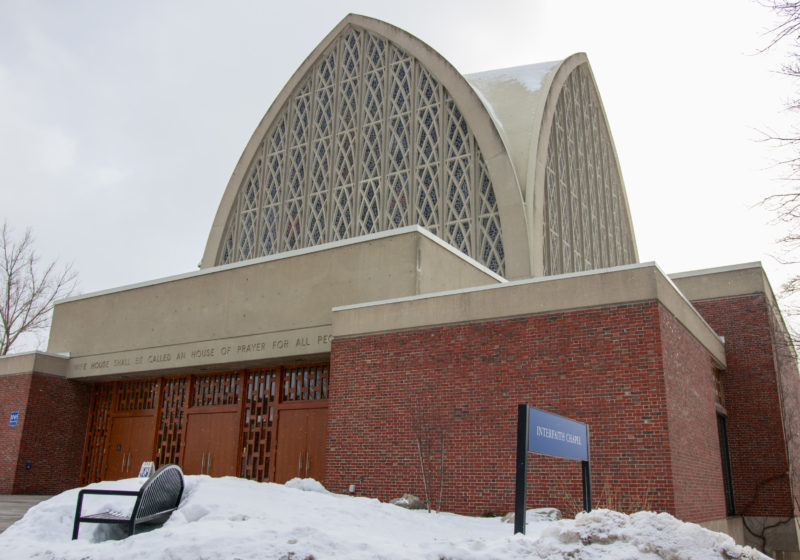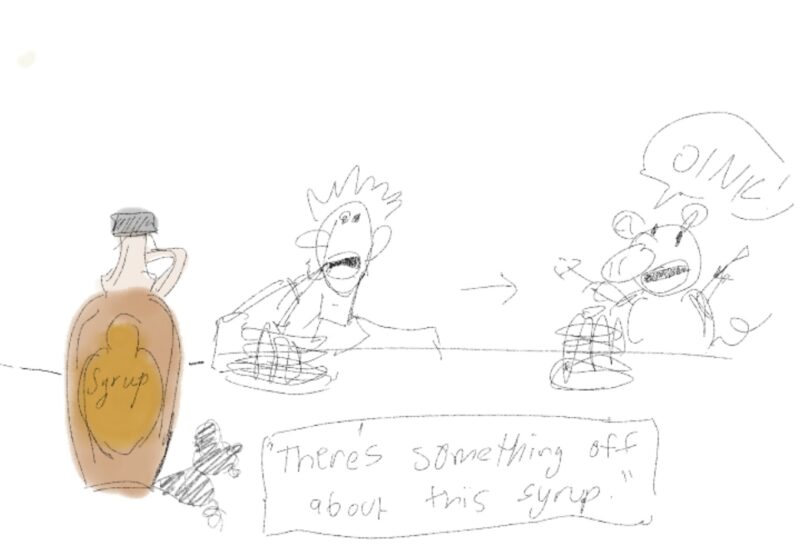Thursday night’s Medallion Program workshop, titled Understanding and Responding to Antisemitism and Anti-Israel Sentiments on Campus, received intense student backlash after presenter Joy Getnick, Executive Director for Hillel, muted attendees during the presentation and ended the Zoom discussion early. Getnick said she wasn’t sure “if people came to hear things in the way [she] intend[ed],” and “[she] reserv[ed] the right to close that.”
The workshop was promoted by the Medallion Program as a way to “introduce participants to historical and contemporary expressions of antisemitism, with a focus on understanding how antisemitism presents itself on campuses today.” In addition, the training was to “focus on understanding the intersection and divergence of antisemitism and anti-Israel sentiments, and the boundaries between legitimate criticisms of Israel and anti-Israel/anti-Zionist/antisemitic behavior.”
Immediately after the workshop’s announcement on WCSA’s Instagram, which has subsequently been deleted, student concerns arose. As a result, the eboard of Students for Justice in Palestine (SJP) agreed to join the event together, promoting attendance to their individual followings as well as to the club at large.
“Hey guys! Just wanted to let you all know how the Medallion Program is trying to discuss the anti-Israel sentiment on campus and correlating it with antisemitism, and I think it’s important for our members to try to attend to set the record straight that anti-Israel isn’t antisemitism. That our school and the Medallion Program specifically should not stand for a state that is committing the crime of apartheid!” said SJP President and senior Mufida Asmar in a statement to the club.
The Zoom event was prefaced by Getnick explaining the workshop’s origins, which were apparently spurred as a result of incidents this past May during increased tensions between Palestinians in Jerusalem and Israeli police. Getnick specifically mentioned that there had been “some Instagram posts and some comments that felt upsetting to Jewish students on campus that felt threatening of their identities and how they might connect to their heritage,” and that “there wasn’t really an awareness of why those statements might be so upsetting.”
The goals of the event were noted as being launched through the Medallion Program “as part of increasing understanding and cultural awareness of all peoples and for all people on campus.” According to Getnick, the workshop had “started with some faculty and staff” and Hillel was “doing kind of a soft launch tonight through the Medallion Program to see who really wanted to show up and engage in the conversation.”
In addition, group participation was encouraged, with Getnick specifically noting that she wanted people “to feel like they can ask questions.”
“If that’s not something that we’re really going to focus on, I might say, ‘Hey, I’m happy to continue that conversation online at a different time,’” she continued, “so that we can get through what we do intend to focus on today. I certainly don’t want people to feel like their voices are squashed.”
Around ten minutes into the start of the talk, Asmar raised her virtual hand to comment on the correlation posed by the workshop between antisemitic and anti-Israeli sentiments. In the middle of her statement, Getnick cut her off, stating that Asmar’s interjection was “the conversation [she didn’t] want to have tonight.”
Twenty minutes in, Asmar attempted to be called on again, but was ignored. When she spoke up, stating that Getnick was “saying things that were harmful to students at [UR],” Getnick forcibly muted her, saying that she had to “because it wasn’t the point of this educational opportunity”.
Midway through the presentation, after Getnick refused to answer any further questions until concluding the talk, SA President and junior Sabeet Raza left the Zoom call with this statement:
“Hi all, Joy, thank you for the presentation and organizing. Unfortunately, it seems quite unfair to host an event through a program developed and intended to uplift marginalized voices — particularly of students — and shutting students down at your convenience without giving them good faith opportunities to express their perspectives. The purpose of the Medallion program is to uphold and promote the MELIORA values; Equity, Leadership, Integrity, Openness, Respect and Accountability. Clearly, there is no respect for student voices, a lack of openness towards student perspective, and a bad faith attempt to educate without engagement; especially at an event intended to promote civic engagement, which, of course, requires engagement; something [this] event clearly lacks thus far. I have to head out for another commitment, but can only hope that the engagement part of this civic engagement event will be honored going into the next hour.”
Towards the end of the meeting, in response to comments from recent graduate Jenna Raslan ‘21, Getnick pulled up a slide containing three Instagram posts made by UR students in the past 24 hours. Getnick attempted to block identifying information of students, but left profile photos visible.
“I’ve blocked out who the names are — folks here might know who posted them, but that’s not relevant for me to share,” Getnick said.
She then read the first post aloud and began analyzing the content to explain how the language could be perceived as “biased and hateful.” Getnick was cut off from continuing when a student unmuted and began arguing over her choice to say “Israeli military presence in West Bank,” stating that it was an “occupation” repeatedly.
After this interaction, Raslan unmuted and attempted to resume the previous line of conversation when Getnick abruptly ended the call in the middle of their statement. According to Raslan, they had been in the middle of attempting to explain to Getnick the difference between attacks on Israeli politics and antisemitism. In an interview with the Campus Times, Raslan had this to say about Getnick’s behavior on call: “You cannot claim to be talking about the lives and emotions of people of a religion and then consistently equate it to political activity and not expect people on the other side to want to engage in that conversation. You draw that division when it’s convenient for you.”
Getnick, when questioned about the results of the presentation by the Campus Times, responded with this statement over email:
“In general, it’s just not a good idea for me to get into a more nuanced conversation about this situation in such a public way […] I can say that our intention was to offer a training about how Jewish students experience antisemitism and anti-Israel sentiments on campus. It was unfortunate that so many students showed up — at the last minute, and continually throughout the program — with a seemingly different agenda.”
Editor’s Note (02/11/22): The original headline for this article was “Student voices silenced at Medallion Program workshop.” Upon reflection, this has been changed to avoid potentially leading or inflammatory language.
Editor’s Note (02/13/22): This article has been edited to include additional information on the timeline of the workshop. Specifically, information has been added regarding the inclusion of Instagram posts by UR students.





